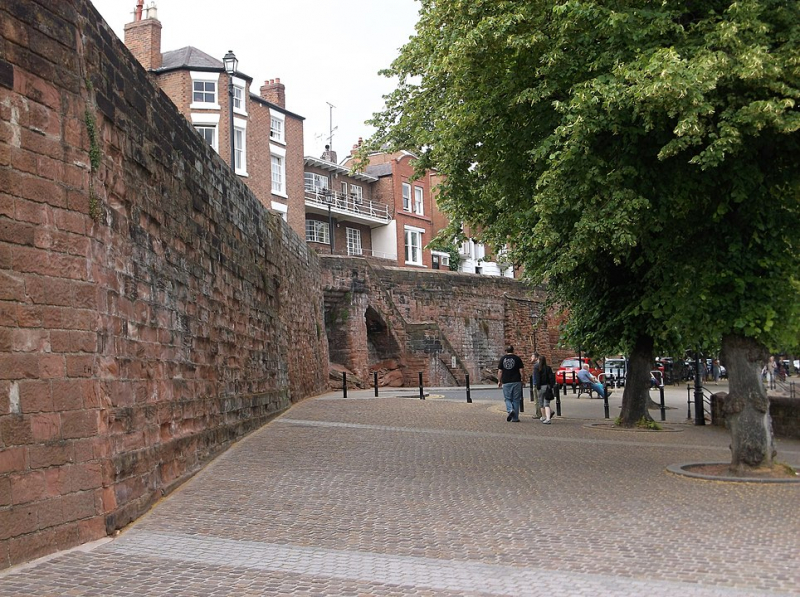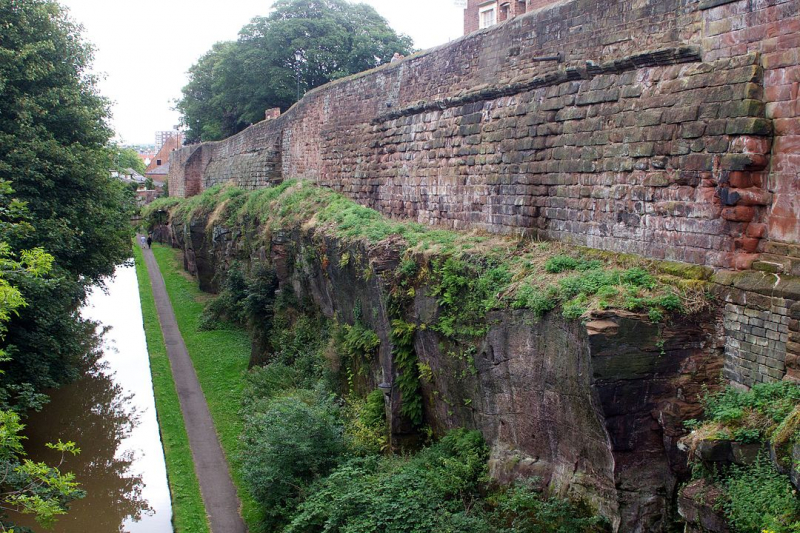Chester
Chester is the county town of Cheshire, England, and a cathedral city. It is situated on the English-Welsh border on the River Dee. It is the most populous settlement of Cheshire West and Chester and serves as its administrative seat. It is also the historic county town of Cheshire, as well as the county's second-largest settlement after Warrington.
During the reign of Emperor Vespasian, Chester was established in 79 AD as a "castrum" or Roman fort called Deva Victrix. Deva, one of the most important army barracks in Roman Britain, later became a prominent civilian community. King Æthelred of Mercia established the Minster Church of West Mercia in 689, which ultimately became Chester's first cathedral, while the Angles rebuilt and strengthened the city fortifications to protect it against the Danes.
Chester's city walls are among the best maintained in the country, with a Grade I listing. It features a few medieval structures, but the majority of the black-and-white buildings in the city center are Victorian restorations from the Black-and-white Revival movement. Apart from a 100-meter (330 ft) portion, the walls are practically complete. The Industrial Revolution brought railways, canals, and new roadways to the city, which witnessed significant expansion and development; examples of Victorian architecture from this period include Chester Town Hall and the Grosvenor Museum.
Location: United Kingdom











